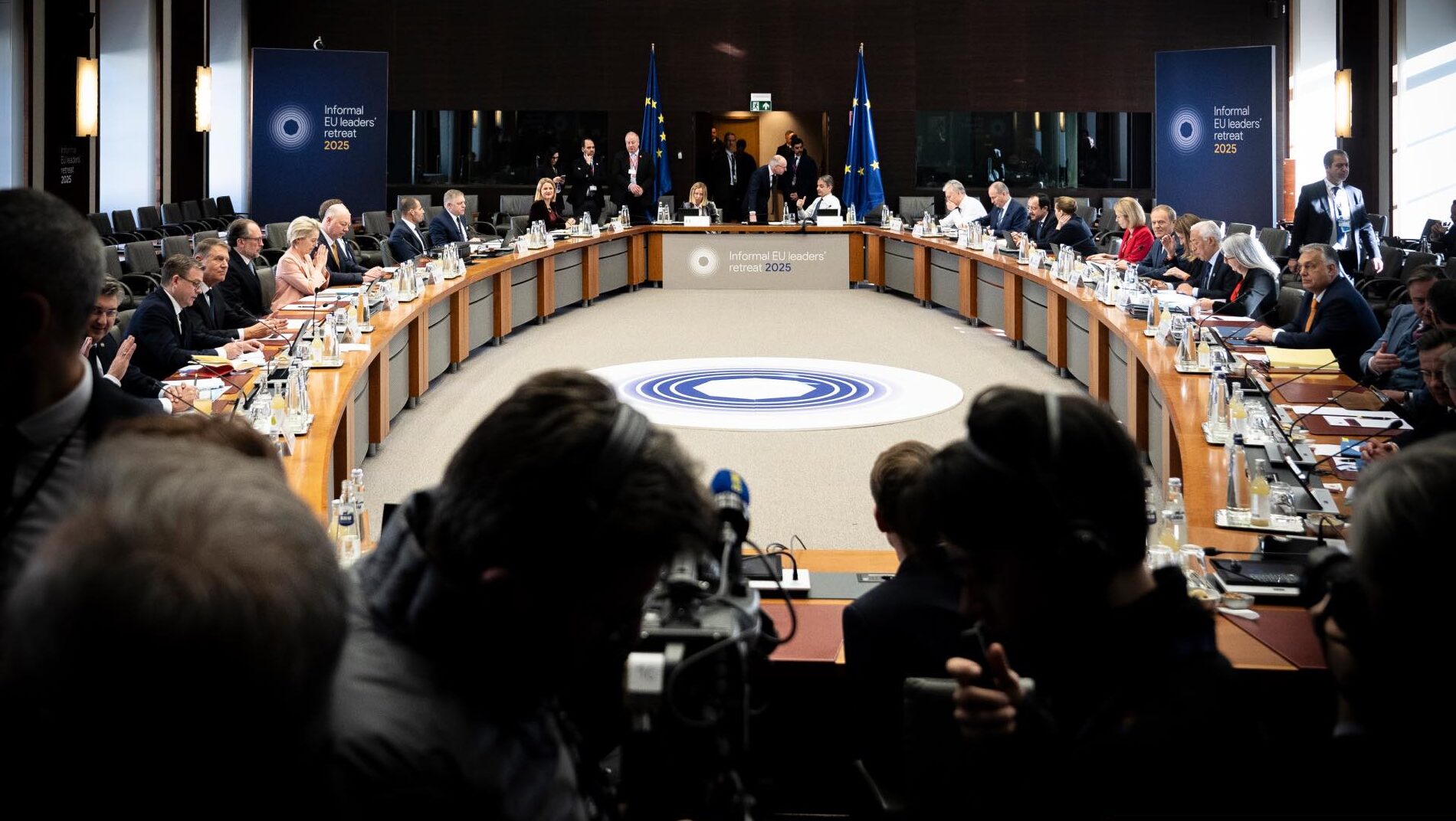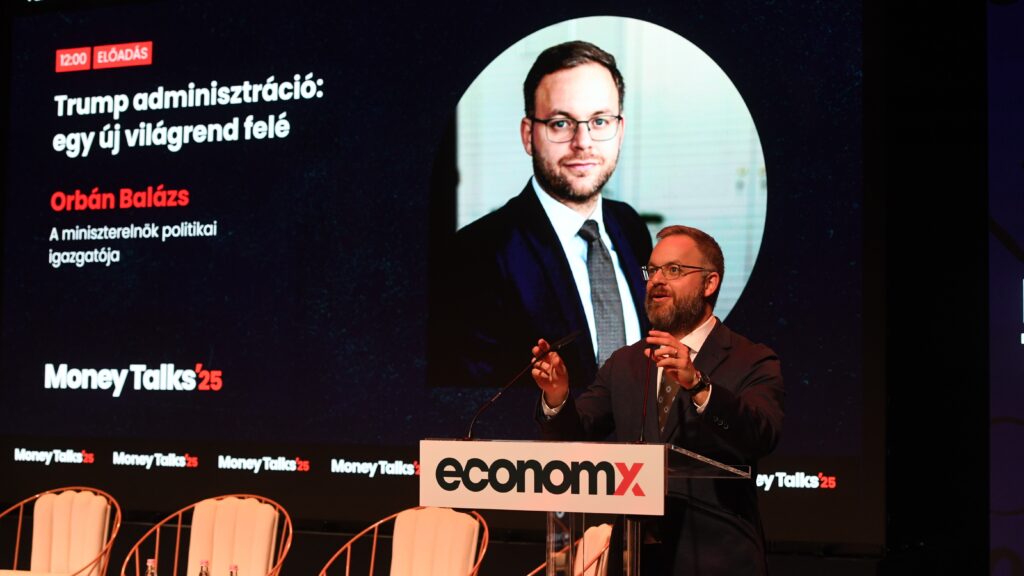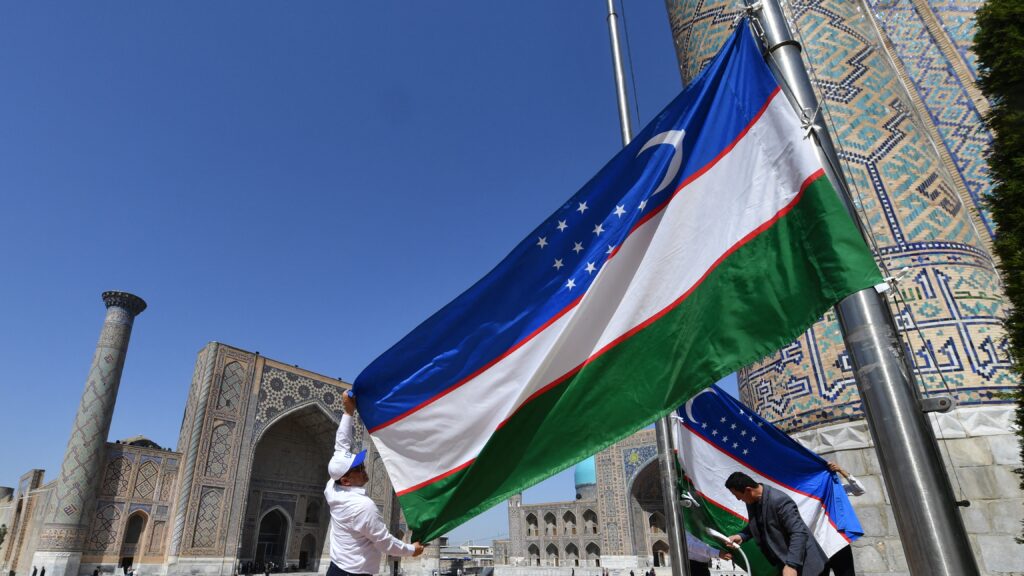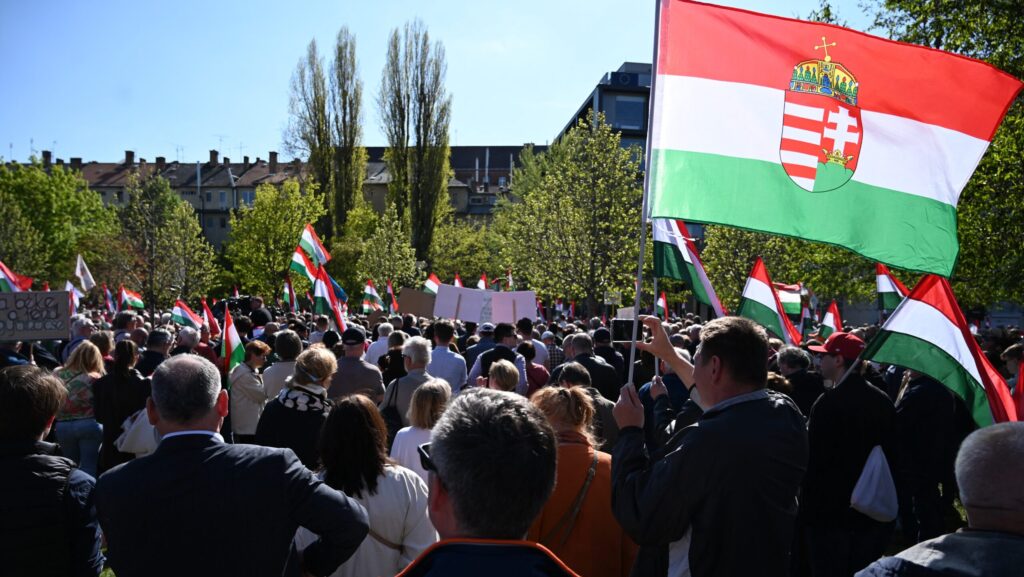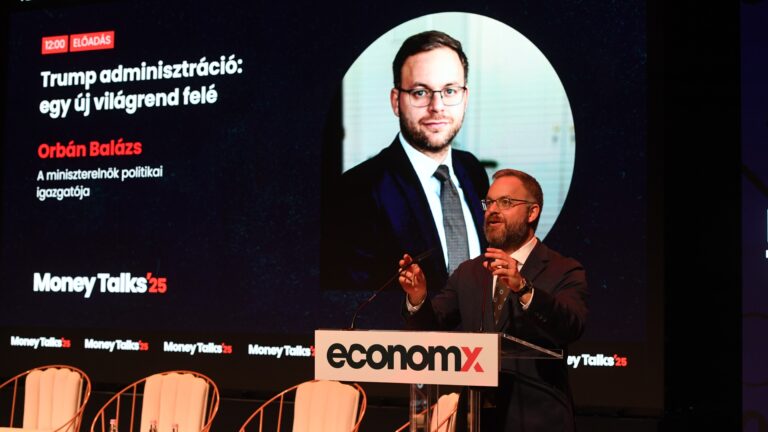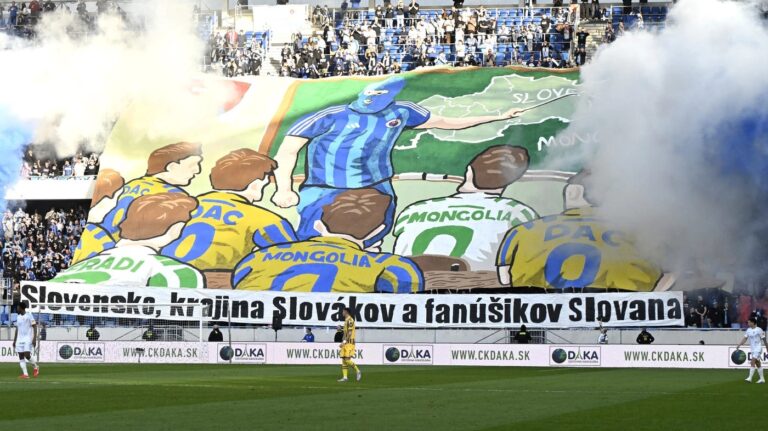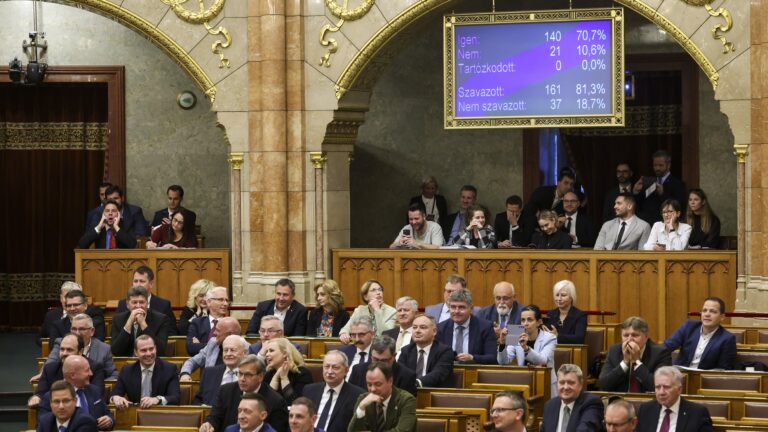On Monday the European Council (EUCO) held its first-ever defence summit—as described by EUCO President António Costa—in Brussels. The informal meeting of EU heads of state and government was also attended by NATO Secretary General Mark Rutte and British Prime Minister Keir Starmer.
However, the ‘Trump tornado’ had already shaken the summit’s agenda. While EU leaders initially intended to focus exclusively on defence, the discussion was overshadowed by the US president’s announcement, made a day before the summit, of tariffs against Canada, Mexico, and China—and signalling that Europe could be next.
‘The Trump tornado has arrived in Brussels and turned everything upside down… It’s a mess, we need change,’ Hungarian Prime Minister Viktor Orbán said in a video shared on his Facebook page on Monday. He added: ‘It is our job to bring about this change. The Patriots, and today I myself, am working on this. We must take over Brussels.’
96K views · 5.4K reactions | Brüsszelbe is megérkezett a Trump-tornádó🌪️ | Orbán Viktor
Brüsszelbe is megérkezett a Trump-tornádó🌪️.
Before the EU leaders’ meeting, Orbán held bilateral talks with Rutte. After the meeting, the NATO Secretary General stated that they had discussed the alliance’s deterrence and defence capabilities, as well as the importance of increasing defence spending.
Mark Rutte on X (formerly Twitter): “Great to see #Hungary 🇭🇺 @PM_ViktorOrban!We discussed our deterrence and defence and the importance of ramping up defence spending & production to keep our Alliance strong. pic.twitter.com/Pc6TmtOdoC / X”
Great to see #Hungary 🇭🇺 @PM_ViktorOrban!We discussed our deterrence and defence and the importance of ramping up defence spending & production to keep our Alliance strong. pic.twitter.com/Pc6TmtOdoC
Earlier in January at the World Economic Forum in Davos, Switzerland, Trump argued that NATO member states should allocate 5 per cent of their GDP to defence annually—a figure that would significantly impact the Hungarian economy, as Orbán pointed out at the end of last year. The Hungarian prime minister added that if an increase in defence spending became necessary, Hungary would implement it gradually.
Rutte Shatters ‘Powerful EU’ Image
After the informal meeting, addressing both European defence and the possibility of a US–EU trade war, European Commission President Ursula von der Leyen stressed that the EU is committed to a ‘robust but constructive dialogue’ with the United States while acknowledging potential challenges in relations with Washington. ‘When targeted, unfairly or arbitrarily, the European Union will respond firmly,’ von der Leyen highlighted.
The Commission president also told reporters that a white paper on the future of European defence will be presented by March, based on which member states will make decisions in June. She also called for a significant increase in defence spending, aligning with Trump’s position, and urged member states to go beyond the current average of 1.9 per cent.
Ursula von der Leyen on X (formerly Twitter): “Europe needs a surge in defence.For years, we have underinvested in defence.We need to catch up.And strengthen our defence industrial base ↓ https://t.co/0kdpxjo0sH / X”
Europe needs a surge in defence.For years, we have underinvested in defence.We need to catch up.And strengthen our defence industrial base ↓ https://t.co/0kdpxjo0sH
European Council President António Costa also underlined the importance of dialogue and finding solutions between the EU and the US, calling Washington ‘our friend, our ally, and our partner.’ He stressed that member states need to act more swiftly in strengthening common European defence, which, he argued, would not only enhance security but also boost competitiveness. Costa added that Brussels seeks to address potential challenges in US–EU relations while defending ‘our values, upholding our principles, and without compromising our own interests.’
While von der Leyen and Costa attempted to project an image of a strong, united EU capable of defending itself, Rutte took a blunter and more realistic stance. Before the meeting he stated that European defence ‘is not working’ without US involvement, dismissing the idea that NATO could function without Washington as a ‘silly thought’.
‘European defence “is not working” without US involvement’
Rutte also downplayed the potential impact of trade disputes between the US and certain member states—such as Canada and the EU as a whole—on military cooperation. Recent developments appear to support his view, as despite earlier threats to retaliate economically after Trump announced tariffs, Canada’s Justin Trudeau posted on X that, following ‘a good call’ with the US president, his country is implementing a $1.3 billion border plan to counter fentanyl smuggling to the US, in exchange for a 30-day suspension of the proposed tariffs.
Rutte also took a more neutral stance regarding Washington’s interest in acquiring Greenland, acknowledging that the US president had raised valid geopolitical and strategic concerns about the ‘high north’. He also agreed with Trump on the need for increased military spending among member states, urging them to ‘prepare for war’ in an interview published the day before the summit.
Related articles:

